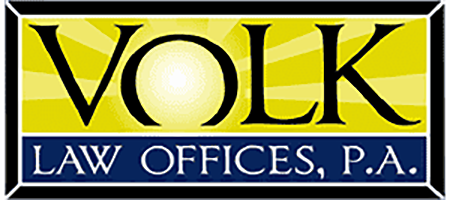Lawsuits
Why is Volk Law your best choice for help with a lawsuit?
David Volk has handled money and property and related lawsuits for over thirty-nine years. He regularly improves the way we efficiently and effectively handle lawsuits. He routinely facilitates, training in what we call Volk Law University to help the team use best practices and improve skills.
While we encourage people to resolve their disputes outside the courtroom, that is not always a successful option. When conversation, negotiation, and mediation fails then it is time to seek a lawyer. Here at VolkLaw , we are dedicated to the success and satisfaction of each and every client that walks through our door. We will walk you through the process of a lawsuit, discussing all of your options so that you can be sure all the bases have been covered and you are getting the best possible outcome.
Here are the basic steps to the lawsuit process:
- Attempt to negotiate and settle out of court
- File the lawsuit
- Discovery (collection of evidence)
- Pre-trial motions and discussion
- Settlement deliberations
- Trial and judgment
- Appeals
Keep in mind that lawsuits can end up being very lengthy, and in some cases can take years to resolve. The legal process varies from state to state, but we provide a great summary of how it works when you hire us.
LAWSUIT SERVICES
Going to court is usually a drawn out process with strategy and tactics of utmost importance. We stay focused on the client objectives and take actions consistent with that. You don't just work on a case. You work on a case to achieve specific objectives. As a full service commercial practice, we evaluate and work up a matter to make sure we build a winning case or to minimize the risk if on the wrong side of the facts or the law. Lawsuits are a mixture of asserting rights and managing risk. The following are examples of types of matters we are able to handle. It is just too long a list to describe in detail.
- Contract Cases
- Breach of Contract
- Breach of Implied in Fact or Implied in Law Contract
- Breach of Third Party Beneficiary Contract
- Promissory Estoppel
- Rescission
- Specific Performance
- Tortious Interference with Contract
- Unjust Enrichment
- Usury
- Breach of Implied Covenant of Good Faith and Fair Dealing
- Business and Commercial Cases
- Noncompete, Trade Secret, and Confidentiality
- Account Stated
- Equitable Accounting
- Antitrust Act
- Misappropriation of One's Name
- Breach of Fiduciary Duty
- Cancellation of Deed
- Civil Conspiracy
- Conversion
- Misleading Advertisement
- Money Lent
- Open Account
- Promissory Note
- Replevin
- Civil RICO
- Interference with Advantageous Business Relationship
- Constructive and Resulting Trusts
- Breach of Joint Venture Agreement
- Warranty Cases
- UCC Warranty
- Common Law Warranty
- Statutory Condominium Warranty
- Implied Warranty
- Indemnity-Common Law, Contractual, Implied Employment Cases
- Florida Civil Rights Act Discrimination
- Retaliatory Discharge
- Federal Protected Class Discrimination
- Fraud Defamation and Privacy
- Defamation
- Governmental Intrusion
- Violation of Security of Communications Act
- Invasion of Privacy
- Intentional Torts
- Intentional Infliction of Severe Emotional Distress
- Civil Theft
- Procedural Torts
- Abusive Process
- Malicious Prosecution
- Physical Torts
- Assault
- Battery
- False Imprisonment
- Negligence
- Forcible Entry and Detention
- Real Property Actions
- Foreclosure
- Eviction
- Prescriptive Easement
- Ejectment
- Inverse Condemnation
- Slander of Title
- Trespass
- Implied or Statutory Way of Necessity
- Consumer Protection
- Florida Deceptive and Unfair Trade Practices Act
- Worthless Checks Collection
- Florida and Federal Consumer Collection Practices Acts
- Procedural Remedy Cases
- Injunction
- Declaratory Judgment
- Government Disputes
- Licensing
- Taxes and Fees
- Code Enforcement and Change Requests
- Liens
- Government Contracting
The matters discussed here are general in nature and are not to be relied upon as legal advice. Every specific legal matter requires specific legal attention. The law is constantly changing and matters discussed today may not be the same tomorrow. Legal matters are also subject to different interpretations by attorneys, judges, jurors and scholars. No attorney-client relationship is intended or created as a result of matters discussed here. You should consult counsel of your choice if you have any dealings in these areas of the law. Volk Law Offices, P.A. and its attorneys make no representations or warranties with respect to the accuracy or completeness of the matters addressed.

